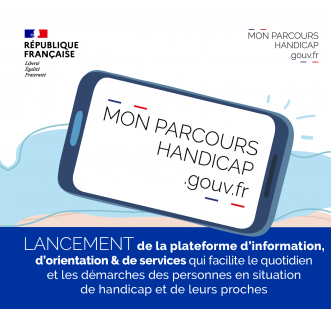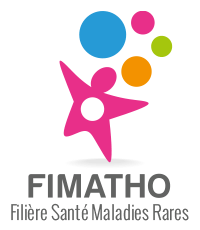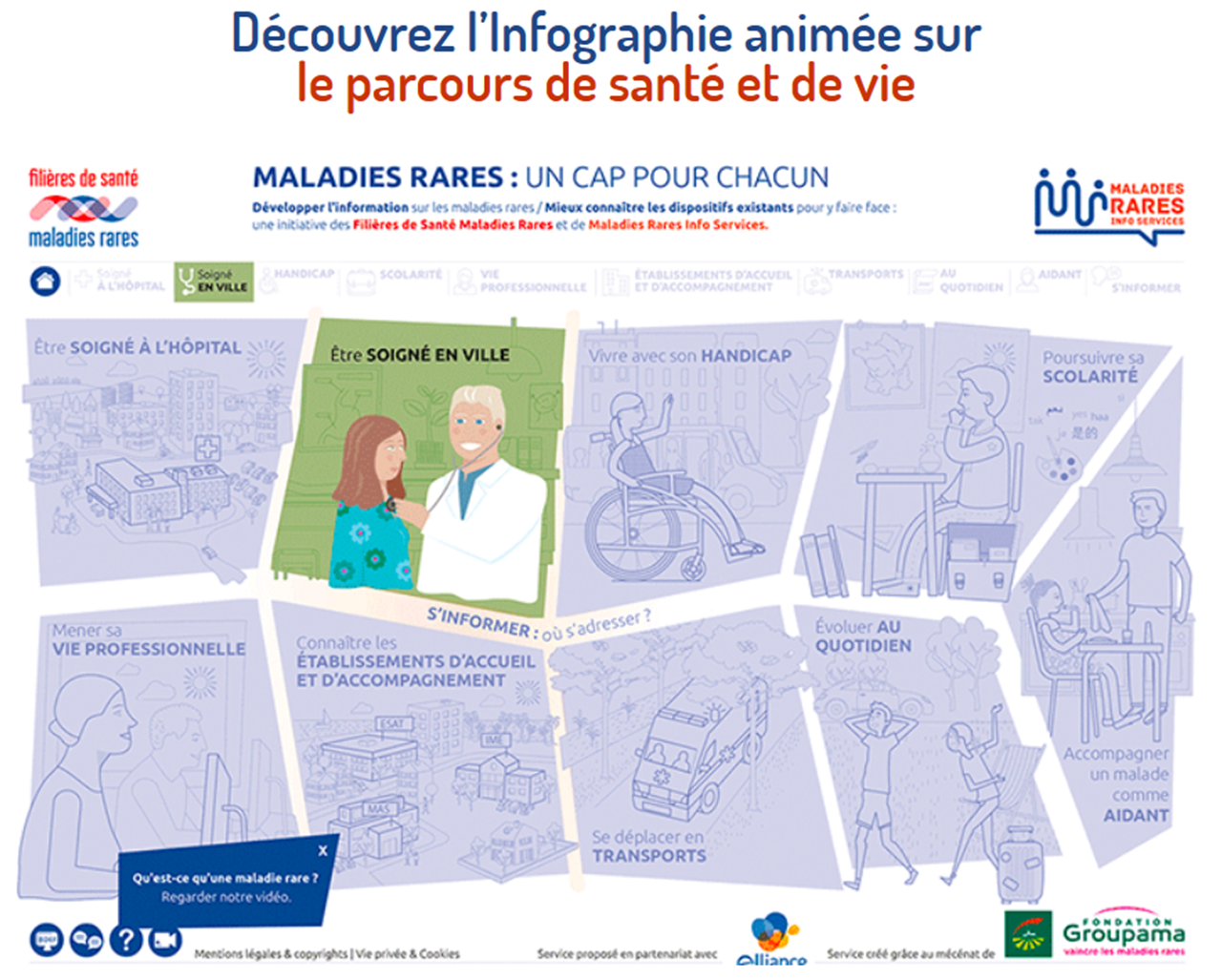Most rare diseases may have consequences on various aspects of the life of the affected person. These limitations and restrictions on taking full part in life in society constitute a handicap; however, it is possible to live with a rare disease. (source: Direction Générale de l'Offre de Soins (French General Directorate for Health Care Provision) )
Laws pertaining to health insurance and to public health policy have considerably changed the environment for disabled people. In particular, Act 2005-102 of 11 February 2005 on equal rights and opportunities, participation and civil rights of disabled people.
Since 2005, in each department, a Maison Départementale des Personnes Handicapées (MDPH, or Departmental Centre for Disabled People) (formerly Cotorep) creates a single contact point to which people with a disability may go to get information on their rights, and request help or services, whatever their age and situation.
The intervention of MDPH proves necessary when the activation or adaptation of common law measures is no longer sufficient in meeting the needs of a disabled person.
The Caisse Nationale de Solidarité pour l’Autonomie (CNSA or the National Solidarity Office for Autonomy) assisted in the creation of the MDPH centres and lends them its support. It also provides its support to rare disease health networks on the medical-social aspects of their actions, by leading working groups and providing its expertise and its partner network. Three subjects have been defined together with the networks: relationship with the MDPH centres (cross-disciplinary tools), communication with representatives from the National Education service, and training.
TREATMENT AND INSURANCE COVERAGE
The reimbursement of health expenses caused by a rare disease is the same as for any other pathology. These expenses include out-of-pocket expenses on the one hand, and expenses paid via complementary insurance on the other. To learn more
National health insurance may cover 100% of these expenses if:
- The patient has a long-term illness (ALD) plan under title ALD 30
- The patient has an "off-list" ALD plan (ALD 31)
- The patient suffers from several disorders causing a disabling pathological state (multiple pathologies ALD 32)
(Please note: long-term illness status facilitates access to care for persons with chronic diseases. It is diagnosed by a physician according to admission criteria. Fee enhancements, deductibles, etc. are excluded from coverage)
AID AND SERVICES
Aid and social services are offered by various organisations to meet the needs of people suffering from rare diseases, according to their age and difficulties encountered (children, able or disabled adults or elderly people with loss of autonomy, elderly persons with disabilities).
For more information, you may consult the document offered by Orphanet: " Vivre with a rare disease in France – aid and services » (December 2019).
This booklet presents the aid (human, financial and technical) and services that people suffering from rare diseases (whether disabled or not) and their families can benefit from, for assistance and to help them live in society on equal footing with able-bodied people.
New service in 2019: Fathers whose newborn is hospitalised in a specialised care unit after delivery, will benefit from an additional paternity leave starting on 1 July, according to a decree published on Wednesday 25 June in the Official Journal. (Decree No. 2019-630 of 24 June 2019 pertaining to the creation of paternity leave in case of hospitalisation of a child)
SCHOOLING
The orientation decision for children suffering from rare abdominal and thoracic diseases involves parents, the child and the local MDPH.
The child may attend school:
- In an ordinary environment: the child is accompanied by an education assistant (in the case of individual schooling) or follows suitable education in a group
- In a protected environment: medical-social institutions offer schooling and adapted education (for example, IME – Institut Médico-Educatif, or Medical and Education Institute).
To learn more, you can "Tous à l’école" website (Everyone at School) as well as the website of the French Ministry of Education "La scolarisation des élèves en situation de handicap” (Educating disabled children)
Animated infographic on the health and life pathway
This tool is offered by the Rare Disease Health Networks and Rare Disease Info Services.
A short demonstration of the infographic has been made in video form by the BrainTeam network.
"My disability path" platform
This 100% accessible platform, designed for and with disabled people, will progressively expand to include new services, according to a continuous improvement approach. It will be extended until 2022 and over time will offer information and service content regarding the entire life pathway of disabled persons (discovery of the disability, parenting, schooling and studies, health, social and cultural life, housing, transport, ageing, retirement, etc.).
Designed as a single point of entry, the purpose of the "My Disability Path" platform is to help disabled people stay informed and undertake their own formalities online using direct access to:
- general, official, reliable, easily comprehensible and updated information;
- geolocalised, national and local resources (directories, specialised websites, events, etc.);
- personalised, secure services.
"My Disability Path" is part of the "Osons l'emploi” (Dare to Hire) inter-ministry strategy carried out by the Ministry of Labour, the Secretary of State in charge of Disabled People and the Ministry of Action and Public Accounts.
source: https://www.cnsa.fr/actualites-agenda/actualites/lancement-de-la-plateforme-mon-parcours-handicap




